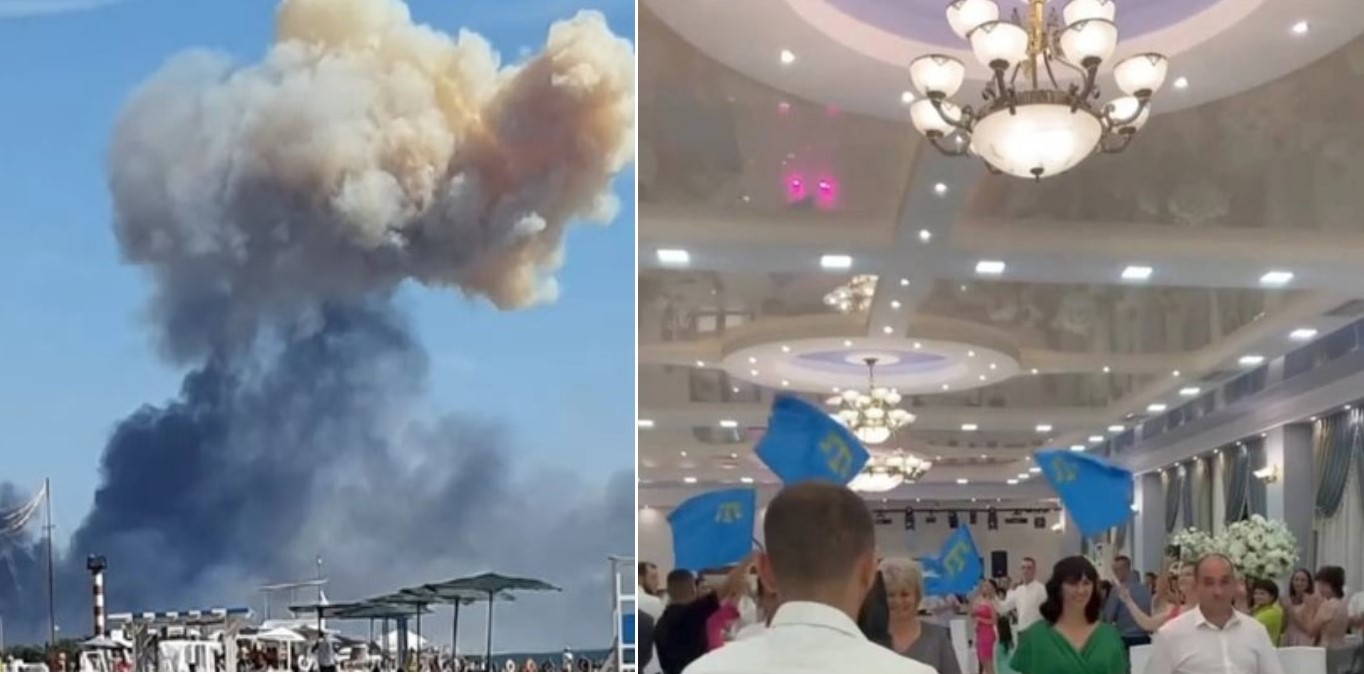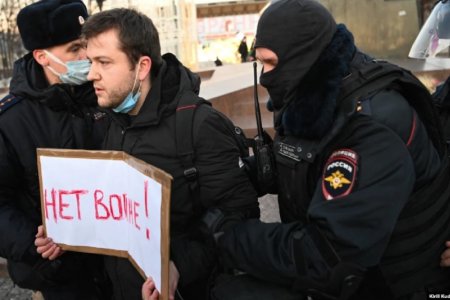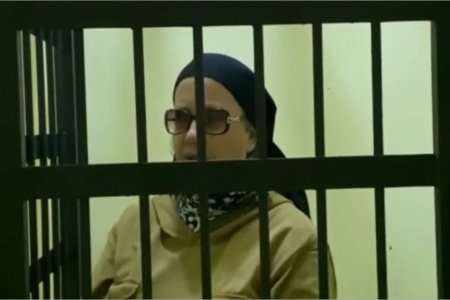
A Russian-controlled ‘court’ in occupied Crimea has jailed at least four people involved in a Crimean Tatar wedding in Bakhchysarai for playing a Ukrainian patriotic song, and fined others. This follows loud indignation from a pro-Russian blogger and a bellicose address from Russian-installed ‘leader’ Sergei Aksyonov. Such hysterical overreaction is particularly notable since, as Akhtem Chiygoz, Crimean Tatar Mejlis leader and Ukrainian MP, explained to Crimean Realities, Ukrainian songs were regularly played at weddings and New Year celebrated according to Ukrainian time throughout Russia’s illegal occupation of the peninsula. What has changed is that Russia is now facing tangible and embarrassing military defeats, including the attacks on military sites in occupied Crimea. Chiygoz is convinced that those who supported Russia’s occupation of Crimea did not feel the need to react to songs at weddings as they believed Russia was there to stay. “The fact that the enemies are raging is a result of the actions of Ukraine’s Armed Forces. Everybody understands that this is not for long, that the days of Crimean occupation are numbered.”
Two weddings, one at the Arpat restaurant in Bakhchysarai on 12 September, the other in Simferopol, first aroused the ‘indignation’ and prompted threats of reprisals from blogger Aleksandr Talipov. The songs in question were ‘Red Kalyna’ [‘Ой у лузі червона калина’ [‘In the meadow there is a red kalyna, or red vibernum’], which predates even Soviet times, but has become internationally known since Russia’s full-scale invasion, and Stefania by the Kalush Orchestra which won Eurovision this year.
Aksyonov then got involved, commenting in a video on 12 September that he considered that those who “chant pro-Ukrainian slogans and sing nationalist songs” should be dismissed, prosecuted or “other measures within the framework of legislation”. Like other collaborators and Russian propagandists, he turned the situation on its head claiming that such songs, etc. are “treachery” to Russia and “to all of those who are today, at the price of their own life, defending peace [sic!].”
Surreal reprisals were swift. On 13 September, the occupation Bakhchysarai district ‘court’ heard charges against Elvira Abdullayeva, the organizer of the Crimean Tatar wedding and mother of the bridegroom, over her allowing ‘Red Kalyna’ to be played. There were even two administrative charges: ‘public actions aimed at discrediting the use of the Russian armed forces’ (Article 20.3.3) and ‘propaganda or public demonstration of symbols or other elements of extremist organizations or other symbols, etc. that are banned’
It is easy to check the lyrics of ‘Red Kalyna’ and understand just how absurd these charges are, yet Elvira Abdullayeva was found ‘guilty’ of both. On the first charge, she was fined 30 thousand roubles; on the second – jailed for five days.
The disk jockey that evening, Akhtem Hemedzhy, faced identical charges, and was fined 30 thousand roubles and jailed for ten days.
The Crimean Process correspondent present explains that the argument used for the charge about banned organizations was that words from the Red Kalyna song were the slogan of the Organization of Ukrainian Nationalists which Russia ‘has prohibited’. The correspondent learned, however, that the supposed ‘specialist’ who gave an opinion on this subject (Dmitry Borisov) is simply a school history teacher. He would seem to have been invited not for any competence on the subject, but because of frequently expressed anti-Ukrainian sentiments.
Later that evening, the same ‘court’ jailed Lilia Abdullayeva, the bridegroom’s aunt, for ten days. Lila Saifullayeva, the mother of the bride and wife of the owner of the restaurant was ‘only’ fined 50 thousand roubles on the grounds that she has underage children. The owner of the Arpat restaurant was, however, jailed for 15 days.
This is not the first time that an occupation ‘court’ has reacted so inadequately to a song, however the earlier prosecution was also based on the accompanying video. As reported, on 12 August disk jockey Yury Rodionov as jailed for ten days for playing a Ukrainian song, with video accompaniment showing Ukrainian soldiers and symbols, in a Crimean bar. The sentence was suspiciously quick, being passed literally the day after the video was posted on local pro-Russian social media sites. On 17 August, the same ‘court’ fined Dmytro Hain, who had asked for the song, 50 thousand roubles for supposed ‘actions aimed at discrediting the Russian armed forces’ [Article 20.3.3 of Russia’s code of administrative offences.]. Both men were forced to make ‘apologies’ on a video shown on pro-Russian Telegram channels. According to Eskender Bariev, Head of the Crimean Tatar Resource Centre, the disk jockey from the wedding in Bakhchysarai has also been forced to make such an ‘apology’.
Bariev notes: “If they’re so afraid of Ukrainian songs, I can just imagine how they’ll run in the near future from Ukrainian missiles…”



